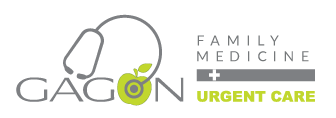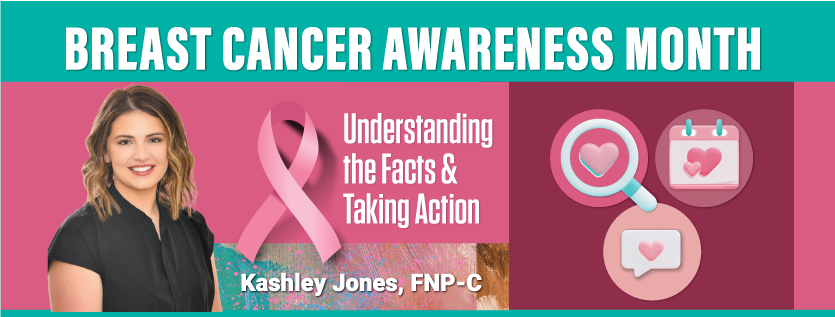October is Breast Cancer Awareness Month: Understanding the Facts and Taking Action
Certified by the American Academy of Nurse Practitioners
As we enter October, Breast Cancer Awareness Month, it is a crucial time to highlight the importance of breast cancer awareness, education, and research. Breast cancer remains one of the most common cancers affecting women worldwide. Here, we will discuss key statistics, risk factors, and screening recommendations to help you stay informed and proactive about your breast health.
Breast Cancer Statistics
- Prevalence: Breast cancer is the most common cancer among women globally, accounting for about 30% of all new cancer cases in women each year.
- Incidence: According to the American Cancer Society, an estimated 297,790 new cases of invasive breast cancer will be diagnosed in women in the United States in 2024.
- Mortality: Despite advances in treatment, breast cancer remains the second leading cause of cancer death among women, with approximately 43,600 deaths expected in 2024.
- Survival Rates: The overall 5-year relative survival rate for breast cancer is about 90%, but this can vary significantly depending on the stage at diagnosis. Early detection is key to improving survival rates.
Risk Factors
Understanding your risk factors for breast cancer can help you make informed decisions about your health. While some risk factors are beyond your control, others can be managed through lifestyle changes.
- Age: The risk of breast cancer increases with age. Most cases are diagnosed in women over the age of 50.
- Genetics: About 5-10% of breast cancers are hereditary, resulting from gene mutations such as BRCA1 and BRCA2.
- Family History: Having a first-degree relative (mother, sister, or daughter) with breast cancer doubles your risk.
- Personal History: Women who have had breast cancer are at higher risk of developing it again.
- Hormonal Factors: Early menstruation (before age 12) and late menopause (after age 55) increase risk. Hormone replacement therapy (HRT) can also elevate risk.
- Lifestyle Factors: Obesity, alcohol consumption, and lack of physical activity are modifiable risk factors that can increase the likelihood of developing breast cancer.
Screening Recommendations
Regular mammograms are crucial for early detection, especially for women over 40, as recommended by the American Cancer Society. Additionally, self-exams can help in identifying any changes in breast tissue. Let’s take proactive steps towards better health together.
Conclusion
Understanding the comprehensive impacts of breast cancer underscores the importance of a holistic approach to care. This includes not only medical treatment but also support for emotional, psychological, and social well-being. As we continue to advance in research and awareness, it is crucial to address all facets of the disease to improve the quality of life for those affected. As we reflect on the importance of early detection, education, and research, let’s commit to making a difference in our communities:
Take Action Today:
1. Schedule Your Screening: If you or someone you love is due for a mammogram, make that appointment today. Early detection saves lives.
2. Educate Yourself and Others: Share information about breast cancer risks, symptoms, and the importance of regular check-ups. Knowledge is power
Together, we can make a significant impact. Let’s unite in the fight against breast cancer and work towards a future where this disease no longer claims lives. Your actions today could save lives tomorrow.
-Kashley Jones, FNP-C


 by
by ![Sun-Safety-Skin-Cancer-header]](https://gagonfamilymedicine.com/wp-content/uploads/2024/05/Sun-Safety-Skin-Cancer-header-80x80.png)
